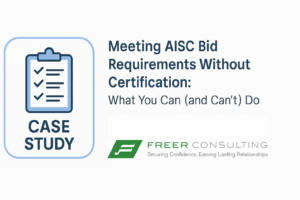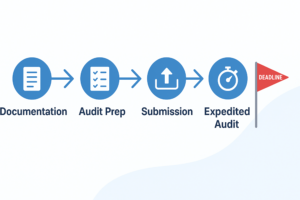Wise businesses think carefully before going through the effort and expense to procure and/or upgrade an enterprise resource planning (ERP) software system. In this blog post, we incorporate lessons from management systems implementation to make the case that businesses should map their business processes out prior to selecting an ERP system. There are two key points to consider if your business is considering an ERP system purchase. First, how can you accurately plan for an ERP implementation if you do not know the scope and boundaries of your business processes? Business process mapping provides the answer to the scope and boundary question. Second, do you wish to have better control over the cost and timeline of the ERP implementation? If your answer is yes, consider that accurate and professionally generated business process maps can assist your company to gain control over the ERP implementation thereby driving value towards your intended outcomes.
All businesses aim to be as efficient and cost effective as possible. Yet, achieving this goal is a significant challenge that many businesses face. Both large and small businesses perform a number of different functions (for example, purchasing, marketing, HR, etc.) that often work independently of each other. When knowledge of these functions is “siloed” or limited only to those who perform them, this can be an impediment to determining if the function is being performed in a manner consistent with a business’s capabilities and objectives and hence if the function can be improved.
One way to address this challenge is through process mapping. Business functions can be thought of as processes: a series of actions and decisions directed toward a specific goal (such as a product or service). Process mapping, therefore, is a technique whereby a business process is broken down into its component steps and typically visualized through a flowchart. Business processes fall into a few different categories:
- Management processes (governance, planning, etc.)
- Operational processes (the core functions of a business)
- Supporting processes (which aid the execution of the core functions)
By mapping out its processes, a business can get a more complete and accurate view of what it actually does and hence make improvements that increase efficiency, reduce errors, and improve customer satisfaction. Process mapping is also crucial for implementing and adhering to international standards, such as ISO. It is, therefore, important for a business to map its processes before considering how it will make needed changes.
Consider, for example, that business processes (for example, purchasing, marketing, HR, etc.) that work independently of each other tend to limit data and software to their specific functions. When a business fails to coordinate their processes and share relevant data across functions, efficiency and costs are compromised. A healthy business consolidates relevant data in an accessible format, which allows for meaningful analysis and measurable improvement.
Once the business model baseline has been established by mapping out processes, companies are then in an advantageous position to begin seriously considering ERP solutions. ERP software systems provide an integrated set of software tools that allow a business to collect and manage data generated from different functions, such as:
- Finance & Accounting
- Purchasing
- Inventory
- Manufacturing
- Delivery of Services
- Human Resources
A business can use ERP to track vital information such as expenditures, sales, and production across multiple processes, which provides a more complete picture of how the business is functioning. This in turn enables the business to identify and make needed improvements. By consolidating data into shared databases, ERP facilitates the flow of information within a business and utilizes integrated software to ensure compatibility between business functions. Furthermore, ERP allows for process automation, thereby freeing up resources and enhancing productivity.
ERP is customizable, and can be scaled to meet the needs of both large and small businesses.
Freer Consulting has considerable experience customizing and implementing process mapping to facilitate your selection and implementation of ERP solutions. If you would like to know more about process mapping, ERP and if they are right for your business, contact Freer Consulting at [email protected] or (206) 285-9044.







